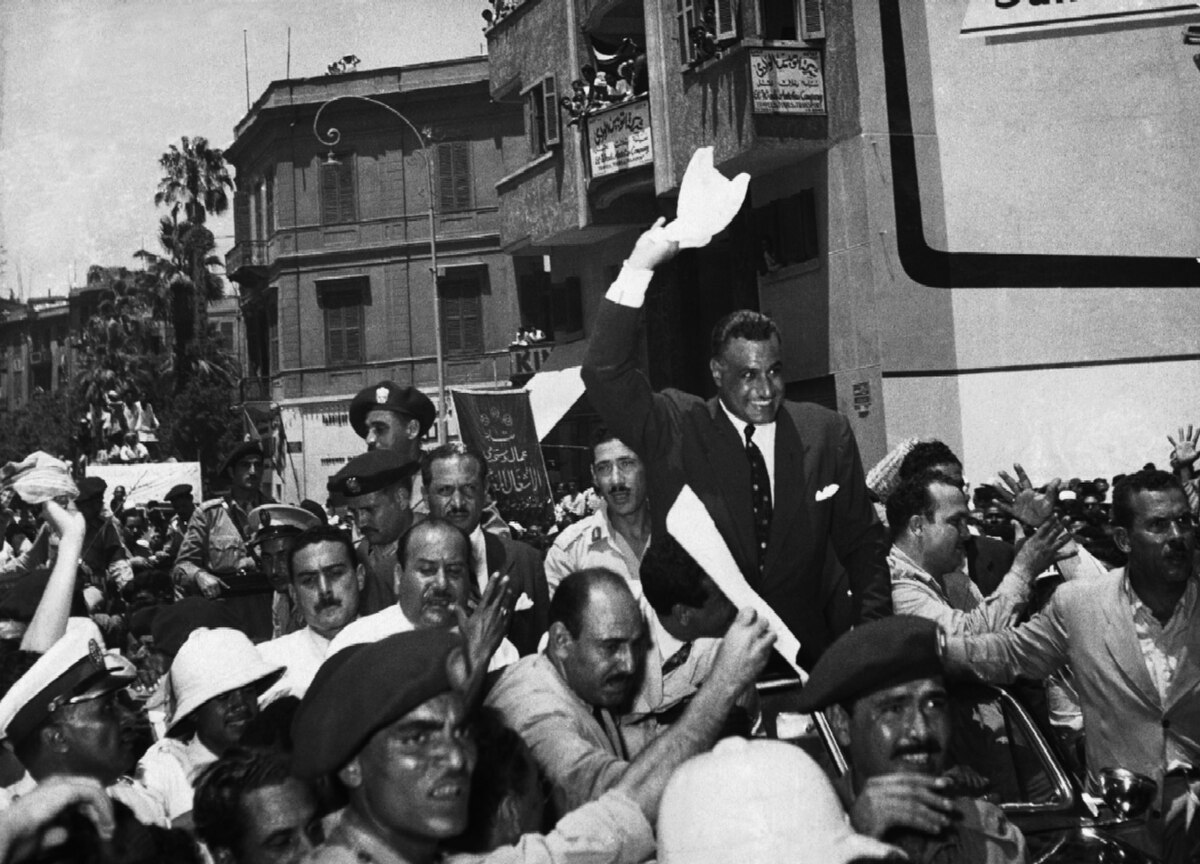
Nasser Era Egypt
EgyptThe period of Egyptian history under Gamal Abdel Nasser, from the 1952 Egyptian Revolution to his death in 1970, was marked by significant modernization and socialist reform, as well as strong pan-Arab nationalism and support for the developing world. Nasser, a key leader of the 1952 Revolution, became President of Egypt in 1956. His actions, especially nationalizing the Suez Canal Company in 1956 and Egypt's political success in the Suez Crisis, greatly enhanced his reputation in Egypt and the Arab World. However, his prestige was notably diminished by Israel's victory in the Six-Day War.
Nasser's era saw unprecedented improvements in living standards, with Egyptian citizens gaining unparalleled access to housing, education, employment, healthcare, and social welfare. The influence of the former aristocracy and Western governments in Egyptian affairs significantly declined during this period.[134] The national economy grew through agrarian reform, industrial modernization projects like the Helwan steel works and the Aswan High Dam, and the nationalization of major economic sectors, including the Suez Canal Company.[134] Egypt's economic peak under Nasser allowed for the provision of free education and healthcare, extending these benefits to citizens of other Arab and African nations through full scholarships and living allowances for higher education in Egypt. However, economic growth slowed in the late 1960s, impacted by the North Yemen Civil War, before recovering in the late 1970s.[135]
Culturally, Nasser's Egypt experienced a golden age, especially in theatre, film, poetry, television, radio, literature, fine arts, comedy, and music.[136] Egyptian artists, writers, and performers, such as singers Abdel Halim Hafez and Umm Kulthum, writer Naguib Mahfouz, and actors like Faten Hamama and Soad Hosny, gained fame. During this era, Egypt led the Arab World in these cultural fields, producing over 100 films annually, in stark contrast to the dozen or so films produced each year during Hosni Mubarak's presidency (1981–2011).[136]
